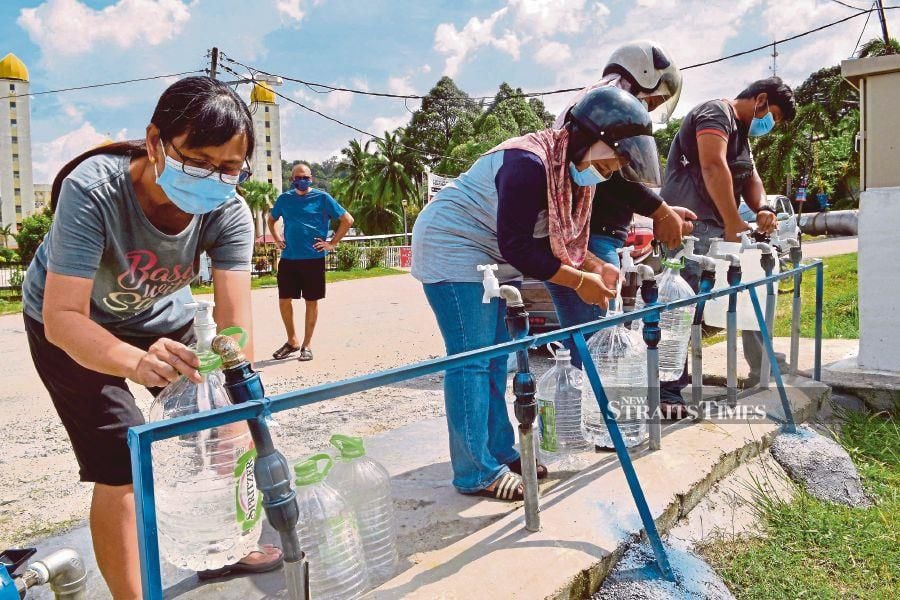
KUALA LUMPUR: Large-scale groundwater projects can have long-term impact on the environment, including land subsidence and seawater intrusion in freshwater zones, the Association of Water and Energy Research Malaysia (Awer) warned.
Awer president S. Piarapakaran said overexploitation could affect the ability of natural groundwater to recharge.
"When water is drawn from the soil, it takes time to recharge naturally. However, if done on a large scale, it could affect the water table level and cause the water to dry up fast."
He said over time this would cause the land to subside and might cause seawater to flow into freshwater areas.
In peat forest areas, he said, this could cause frequent wildfires due to reduced moisture, making them highly flammable.
He said the grave effects of overexploitation of groundwater could develop over a long time and would not be immediately observable.
"Tube wells, for example, are more common in rural areas due to lack of treated water supply and mostly are for individual use. So it is done on a smaller scale and pose minimal risks.
"However, if it involves a bigger volume of water, this can lead to serious problems in the future."
Natural recharge occurs when water seeps back into the soil to replenish underground aquifers as water flows into the ground from rivers or excess irrigation.

Rather than seeking alternative sources of water, Piarapakaran suggested that the government optimise existing surface water resources and improve infrastructure.
"The government shouldn't come up with new policies without solving old issues like non-revenue water (NRW) to increase treated water supply.
"Malaysia has a good surface water system, but it needs improvement, especially in addressing pipe leakage, which is one of the factors contributing to NRW.
"This problem is more serious in some states than others."
He said groundwater projects could cost more than the existing water treatment system and might pose health risks to consumers.
"For surface water systems, we already have a good mechanism to treat pollution in water treatment plants. The same can't be said for groundwater pollution."
During the World Water Day celebration on Saturday, Prime Minister Datuk Seri Ismail Sabri Yaakob highlighted the potential of groundwater, saying the National Water Resources Study for Peninsular Malaysia (2000-2050) proposed for more water catchment areas or reservoirs to meet the needs and demands for domestic water supply and irrigation until 2050.
He was reported as saying the study suggested that groundwater could be used as an alternative source for rural and remote areas for industrial, agricultural or domestic use after undergoing several processes.. - NST



No comments:
Post a Comment
Note: Only a member of this blog may post a comment.